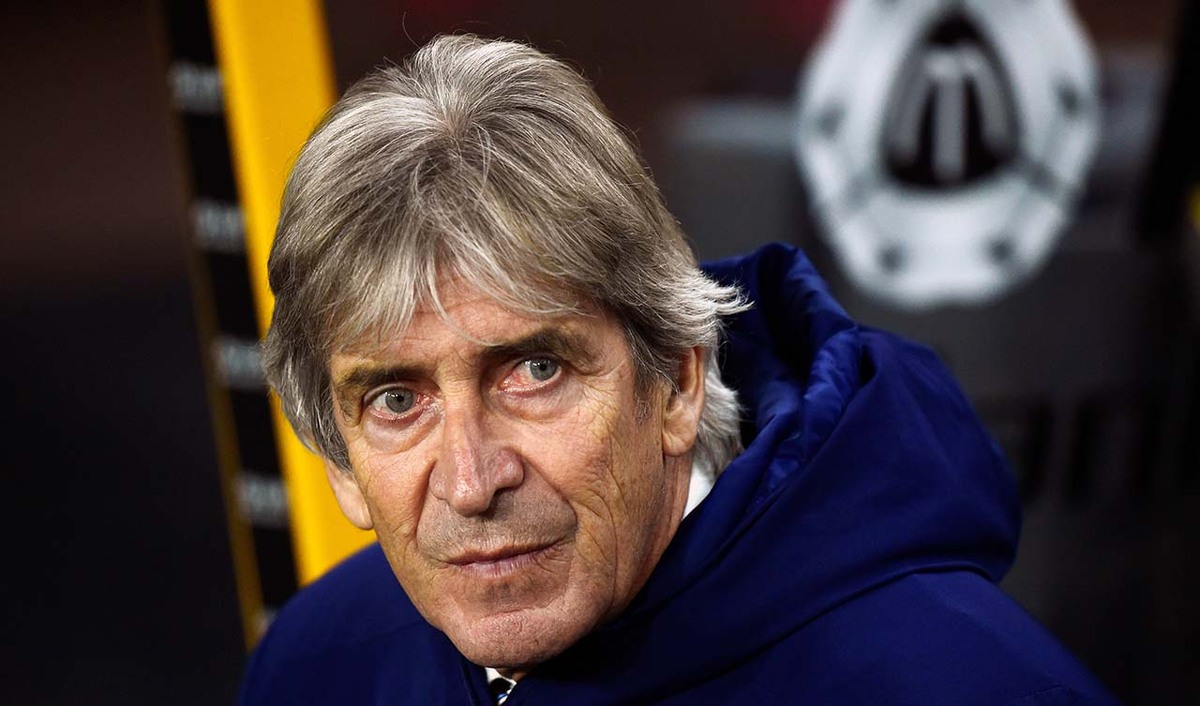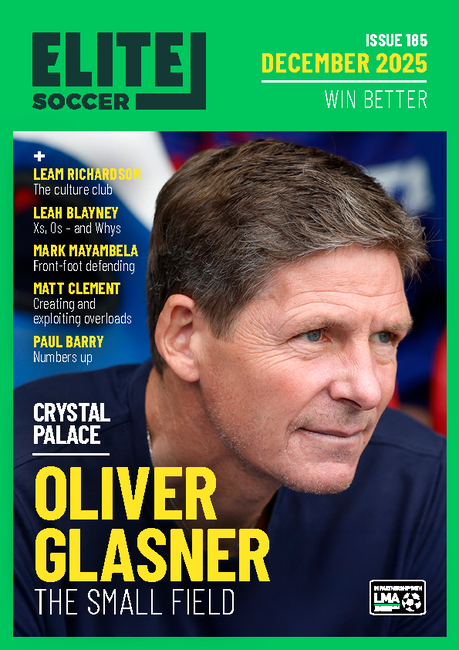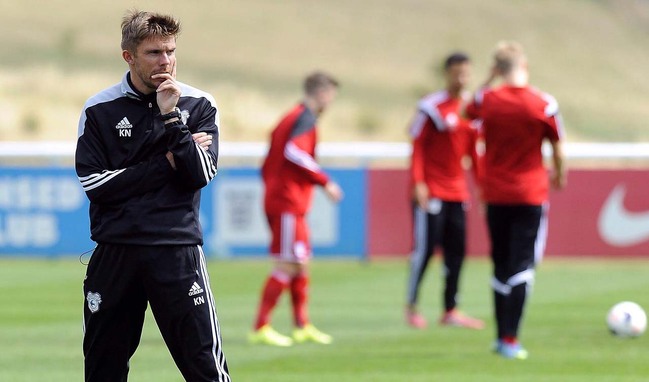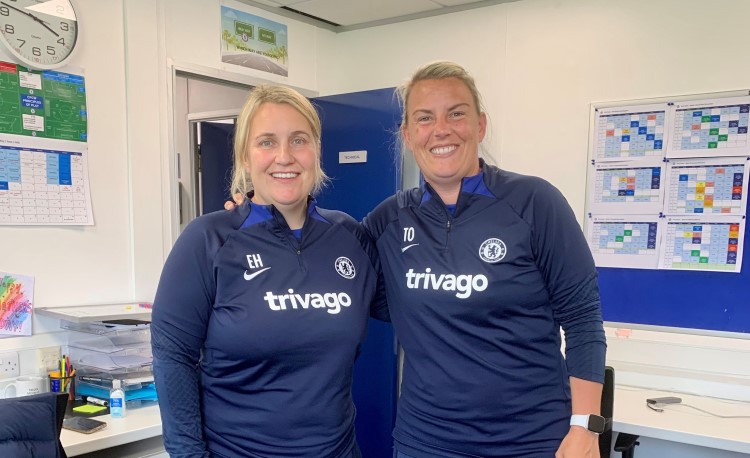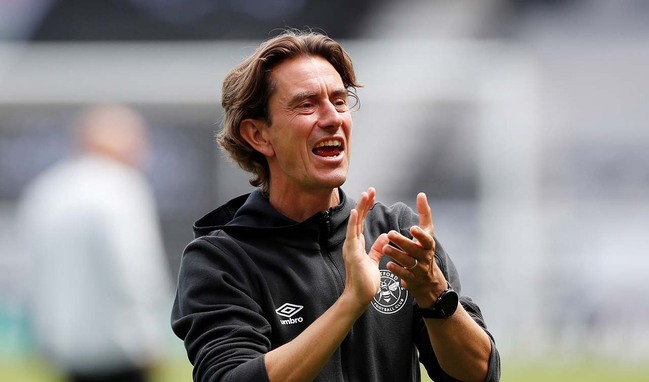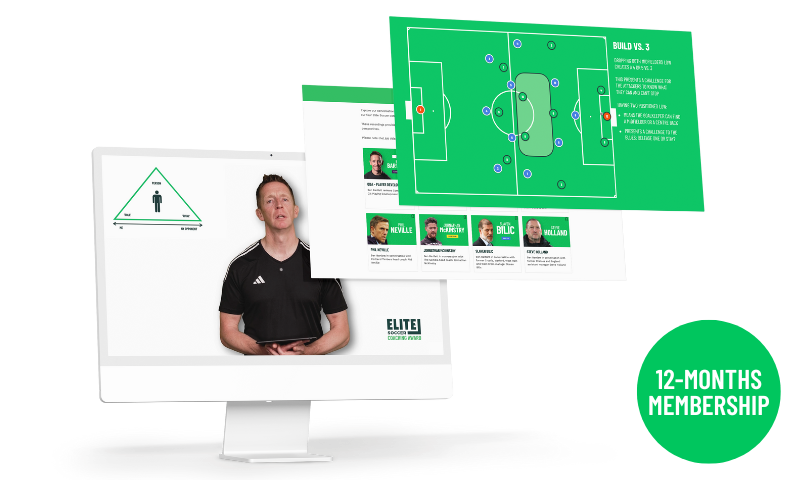
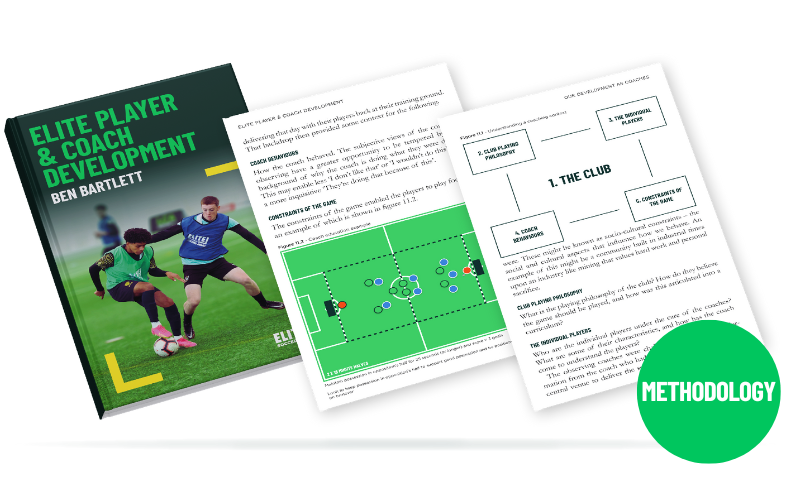
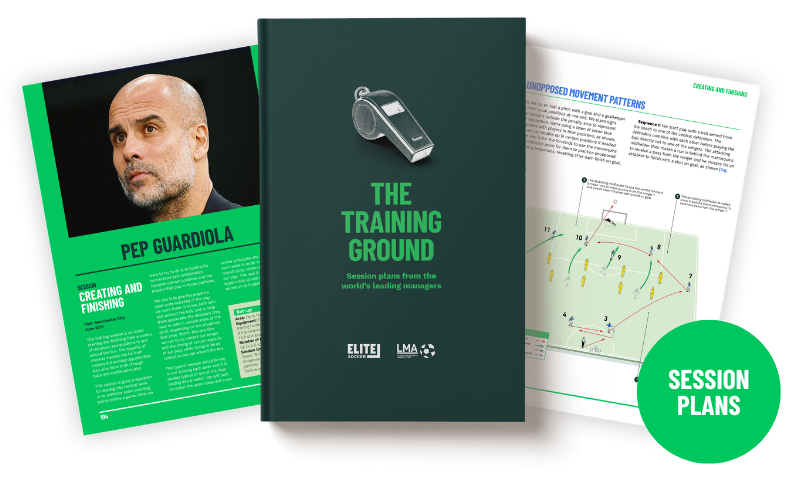


OUR BEST EVER OFFER - SAVE £100/$100
JOIN THE WORLD'S LEADING PROFESSIONAL DEVELOPMENT PROGRAMME
- 12 months membership of Elite Soccer
- Print copy of Elite Player & Coach Development
- Print copy of The Training Ground
You are viewing 1 of your 1 free articles
From Chile to China
Manuel Pellegrini is one of the world’s most travelled and most experienced managers. Having won league titles in four countries, he is now managing at Chinese Super League side Hebei China Fortune.
Chilean-born Manuel Pellegrini played in his home country for Audax Italiano and then Universidad de Chile for 15 years before embarking on a career in management that has so far spanned 28 years. But although he always had an instinctive desire to lead, he wasn’t always sure he’d do so in football.
Keen to continue his studies after graduating from school, Pellegrini took the unusual decision to complete a university course while training and competing professionally for his club. “It wasn’t easy and these days would probably be an impossible thing to do, but I was really pleased that after seven years of study I qualified as a civil engineer,” he says.
By the age of 34 he had his own construction company and his sights were set firmly on a career in civil engineering. “My mind changed, though, during my last few years as a player and I realised I wanted to stay in football,” says Pellegrini, who was also inspired by Fernando Riera, a notable Chilean manager who he played under and who had managed Chile at the 1962 World Cup.
Pellegrini then set about preparing for a career in football management. “I learned English, French and Italian and as well as taking my coaching qualifications in Chile I did a course at Coverciano in Italy,” he says. “I also came to Lilleshall in England and spent time in France to learn as much as I could about coaching. You can only learn through experience and I wanted to be as prepared as possible.”
Part of that preparation was to understand what it means to be a leader. “I had to change my approach to dealing with the players completely,” he recalls, “because you’re no longer a football player, you are their leader, the person they’re looking to for guidance. You have to learn quickly how to manage a group of people all with very different characters and understand that it’s your responsibility to get the very best out of each of them. To achieve that you need to show authority, but just as important is being able to convince them to buy into your methods and share your vision.”
PROVING HIMSELF
Pellegrini got his first taste of management at his former club, Universidad de Chile, one of the country’s biggest teams, and he remained in Chile for 10 years, gaining experience that included a spell as assistant manager of the Chilean national team.
“I think it’s helpful if you can gain your first experience of management in your own country, or at least somewhere you’ve lived for a long time, so that you know the language and the culture,” he says. However, his tenure in his homeland ended in 1999 when the opportunity arose to manage Liga Deportiva Universitaria de Quito, the largest team in Ecuador.
“Off the pitch it wasn’t an easy transition to make,” he says. “It was my first experience of working abroad and my family was unable to move with me, as my wife had a good job as a civil engineer and my three sons were settled in school. It was a great career move, though, and I was proud of what I achieved with the club, including winning the National League title.”
From Ecuador, Pellegrini moved to Argentina where he managed San Lorenzo and River Plate, impressively winning the league title with both sides and the Copa Mercosur with San Lorenzo. “It was an important period for me because Argentina is a very special place for football, with incredibly talented players,” he says. “Once you’ve demonstrated that you can manage big teams there, you’re ready for the challenge of managing in Europe.”
And manage in Europe he did, starting with Villareal, Spain, in 2004. “I settled well in Europe and was really proud that in my first season there we finished second in La Liga, finishing 10 points clear of Barcelona to qualify for the Champions League,” says Pellegrini, who eventually took the team all the way to the semi-finals. “I spent an enjoyable five years with Villareal, and everyone at the club, in particular the president and sporting director, helped me to succeed in my role. We made a good team and they supported me in my vision for the club.”
Pellegrini also found it very rewarding that three of his players were part of the Spanish national side that won the Euro 2008 title. “The players’ development is such an important part of the manager’s role, so I was really pleased for them.”
POSITIVES FROM NEGATIVES
Such was Pellegrini’s achievement with Villareal that Spanish giants Real Madrid sought him out as their manager, something he saw as a real honour.
“It was a great experience and the club felt very different to the others I’d managed,” he says. “I wasn’t the only one to feel this way; I worked with some very high-profile players who had joined from other major clubs around the world and they too were surprised by how different it was at Real Madrid.”
Despite the team achieving 96 points in La Liga – a club record at the time – and scoring 102 goals, the league win was out of reach and Pellegrini lost his job. “As I said at the time, I believe the club signed the best players but not always the ones we needed,” he says. “It’s no good having an orchestra with 10 great guitarists when you don’t have a pianist. I have no regrets about my time there, though, it was a great experience. Although I was only there for a year I was very proud of how we played and of the good relationships I built with the players.”
One major plus from his year at Real Madrid was that without it he may not have had the opportunity to manage at Malaga, a side he led to a fourth position finish in La Liga.
“I take positives from every management experience I have and don’t let disappointment hold me back,” says Pellegrini. “Joining Malaga turned out to be one of the most positive experiences in my career and indeed my life, largely because of the great relationships I had with the players, the city itself and the fans. I was very proud that during my two years managing Malaga we were able to qualify for and reach the quarter-finals of the Champions League with a team that nobody expected to be there.”
NORTHWARD BOUND
It was then that the Premier League beckoned, with a move to Manchester City. “I’d always hoped to have the opportunity to manage in English football because the Premier League is so competitive,” he says. “Manchester City has a very clear vision of what it wants to achieve, on and off the pitch, and the great infrastructure and support that I had there gave me a fantastic platform to achieve that. It was an honour to work with such great players and to make a significant contribution to the club’s success and development – winning the Premier League title in 2014, two League Cups and reaching the Champions League semi-finals for the first time.”
Each opportunity to manage enables a manager to develop, he says, not least because they gain experience of working with different personality types. “Each time you have to adjust your approach,” he says. “The players I’m managing these days are quite different to the ones I started out managing and the demands on both players and managers are much greater.
“I’ve changed as a person over the years and my style of leadership has changed,” he adds. “As a player I was quite aggressive, but while I’ve always been very ambitious and have a strong desire to win every match, I’ve learned to be more measured with my players and to encourage and develop them,” he says. “At the beginning of my career I was quite demonstrative on the touchline, but I realised that I could make better decisions by being calm. I also don’t want any pressure that I ’m feeling to transfer to the players, because they look to see how you’re behaving.
“You’re learning throughout your football career – first from the people you are playing with and against, then from the managers you are playing under and then from the players that you are managing.”
EASTERN PROMISE
Just three months after leaving Manchester City in 2016 Pellegrini took up the role of manager at Chinese Super League side Hebei China Fortune, a young club with highly ambitious growth plans.
“Football isn’t yet the most important sport in China, but the Chinese Super League is determined to transform football over here,” he says. “It’s very motivational to be part of this project with Hebei China Fortune, because I’m in charge of building a complete football club from the youth level right up to the first team.”
Already a speaker of Spanish, English, French and Italian, Pellegrini now hopes to learn some Mandarin and is studying hard to better familiarise himself with the character and culture of the Chinese people. “It’s important to understand the best way to apply my style of management here, as the culture is quite different.”
The football culture is also something he has had to get used to. For example, according to the rules of the Chinese Super League a minimum of eight Chinese players must play in each game and the starting 11 must include a Chinese under-23 player, with another on the bench.
“The rules are changing this season with regards overseas players, so each team can have five, but only three of them can play in a game together,” he says. Meanwhile Pellegrini is working both with the coaching and medical staff that he was asked to bring with him to China and with the local Chinese coaches too. “It’s great to see us all working in harmony together,” he explains.
“We have high ambitions for the club, but we’re taking it step by step,” he adds, “so my hopes for this year are to improve on what we did last season and to try to at least qualify for the Asia Champions League. Although it won’t be easy to compete against the strong teams in the Chinese Super League, it’s important that we are ambitious and have a winning mentality. We want to fight for a title."
Editor's Picks
Attacking transitions
Deep runs in the final third
Using the goalkeeper in build-up play
Intensive boxes drill with goals
Penetrating the final third
Creating and finishing
My philosophy
Pressing initiation
Compact team movement
Coaches' Testimonials

Alan Pardew

Arsène Wenger

Brendan Rodgers

Carlos Carvalhal

José Mourinho

Jürgen Klopp

Pep Guardiola

Roy Hodgson

Sir Alex Ferguson

Steven Gerrard
Related
Coaches' Testimonials

Gerald Kearney, Downtown Las Vegas Soccer Club

Paul Butler, Florida, USA

Rick Shields, Springboro, USA

Tony Green, Pierrefonds Titans, Quebec, Canada
Join the world's leading coaches and managers and discover for yourself one of the best kept secrets in coaching. No other training tool on the planet is written or read by the calibre of names you’ll find in Elite Soccer.
In a recent survey 92% of subscribers said Elite Soccer makes them more confident, 89% said it makes them a more effective coach and 91% said it makes them more inspired.
Get Monthly Inspiration
All the latest techniques and approaches
Since 2010 Elite Soccer has given subscribers exclusive insight into the training ground practices of the world’s best coaches. Published in partnership with the League Managers Association we have unparalleled access to the leading lights in the English leagues, as well as a host of international managers.
Elite Soccer exclusively features sessions written by the coaches themselves. There are no observed sessions and no sessions “in the style of”, just first-hand advice delivered direct to you from the coach.
